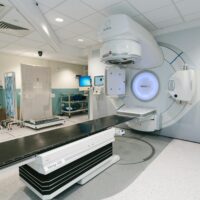Cancer Treatments In Singapore
Cancer treatment has advanced significantly, offering various options to target and manage different types of cancer. Explore our resources to learn about the latest treatments and how they contribute to the fight against cancer.
Get Colonoscopy Facts And Early Detection Of Colorectal Cancer
Our Latest Articles
Who Should Lead Your Cancer Care Team in Singapore?
- July 7, 2025
- 46 Views
- Reading Time: 2 minutes
Guide to Cancer Treatment Options in Singapore
- July 7, 2025
- 72 Views
- Reading Time: 3 minutes
Chemotherapy and Cancer Treatment Costs in Singapore
- July 4, 2025
- 389 Views
- Reading Time: 3 minutes
Topics
Cancer Treatment – Exploring Effective Options
The goal of cancer treatment is to eliminate or control the spread of cancer cells while protecting as much healthy tissue as possible. Treatment plans are often tailored to the type, location, and stage of the cancer, as well as the patient’s overall health.
Chemotherapy
Chemotherapy involves the use of powerful medications to destroy cancer cells or inhibit their growth. Depending on the cancer type and stage, the drugs may be administered orally or via intravenous injection. It is commonly used on its own or in combination with other treatments.
Radiotherapy
Radiotherapy uses high-energy radiation to precisely target and shrink tumors. By damaging the DNA of cancer cells, it helps slow or stop their growth. It can be used as a standalone treatment or alongside surgery and chemotherapy to improve outcomes.
Proton Therapy
Proton therapy is an advanced form of radiotherapy that delivers radiation with high precision. It reduces exposure to surrounding healthy tissues, making it especially beneficial for treating tumors near sensitive organs or in children and young adults.
Talk to your doctor to learn more about these treatment options and determine the most suitable approach for your condition.
Cancer Treatments Centers in Singapore
Preferred Doctors
Financials
Cancer treatments can be expensive, but MediSave can help ease the financial burden by covering certain treatments listed under the Cancer Drug List at Specialist Outpatient Clinics (SOCs). The coverage varies based on the type of treatment:
- Cancer Drug Treatments: Depending on the drug, MediSave can be used for up to $600 or $1,200 per month per patient.
- Patients with Multiple Primary Cancers: If you are receiving treatment for more than one primary cancer, you can claim up to the highest drug treatment limit for each primary cancer per month.
- Radiotherapy Treatments: Coverage ranges from $80 to $2,800 per session, based on the type of radiotherapy received:
- External Radiotherapy: $80 per session
- Hemi-Body Radiotherapy: $80 per session
- Brachytherapy: $360 per session
- Stereotactic Radiotherapy: $2,800 per session
- Proton Beam Therapy:
- Category 1: $80 per session
- Category 2: $360 per session
- Category 3: $2,800 per session
- Cancer Drug Services & Scans: Patients undergoing treatment for one primary cancer can claim up to $600 per year, while those with multiple primary cancers can claim up to $1,200 per year.
You can use your own MediSave or that of an immediate family member to cover these costs. For a full list of eligible treatments and limits, refer to the MOH Cancer Drug List. For additional information on using MediSave for outpatient treatments, you can also refer to CPF’s guide.
Doctor Interview Videos
Dr Lee Kuok Chung explains colorectal cancer screening, treatment options, the advantages of robotic surgery, and the estimated cost of colorectal cancer surgery.
Dr Kim Guowei explains stomach cancer symptoms, diagnosis and treatment options. Should you consider robotic surgery?
Dr Tan Wee Boon explains thyroid conditions and their symptoms. When are they cancerous? Learn also about treatment and treatment costs.
Thoracic surgeon Dr Harish Mithiran shares his insights on how lung cancer patients can be supported every step of the way.
Dr Juanda explains the importance of colonoscopy, how to prepare for it, and to consider screening.
Contact Us
Worried about cancer or due for a screening?
Take control of your health today — our team can help you schedule a screening or connect you with experienced doctors from our trusted healthcare partners. Early detection makes all the difference.
FAQs
The treatments themselves are usually not painful, but side effects such as nausea, fatigue, or skin irritation may occur. Pain management options are available if needed.
The duration varies depending on the type of cancer and treatment plan. Some treatments last a few weeks, while others may continue for months or longer.
Yes, doctors often use a combination of treatments, such as chemotherapy with radiotherapy or surgery, to improve outcomes.
Your doctor will assess your medical condition, cancer type, and stage to recommend the most effective treatment plan tailored to your needs.
Many patients continue working during treatment, but this depends on the treatment type and how the body responds. Flexible work arrangements may be necessary.
Additional Resources
- Guide to Cancer Treatment in Singapore for Foreigners | OncoCare Cancer Centre. Available from: https://oncocare.sg/blogs/tips-for-overseas-cancer-patients-who-wish-to-come-to-singapore-for-treatment/
- Singapore Healthcare Cancer Treatment | International Trade Administration. Available from: https://www.trade.gov/market-intelligence/singapore-healthcare-cancer-treatment
- Types of Cancer Treatment | National Cancer Institute. Available from: https://www.cancer.gov/about-cancer/treatment/types
- Side Effects of Cancer Treatments | Yale Medicine. Available from: https://www.yalemedicine.org/conditions/side-effects-cancer-treatment
- Food to Avoid While Undergoing Cancer Treatment | CityofHope. Available from: https://www.cityofhope.org/patients/living-with-cancer/dealing-with-cancer-side-effects/foods-avoid-while-undergoing-cancer-treatment
- Nutrition Plans for Cancer Patients Undergoing Treatment | UCSF Health. Available from: https://www.cityofhope.org/patients/living-with-cancer/dealing-with-cancer-side-effects/foods-avoid-while-undergoing-cancer-treatment
- 10 Things to Avoid While Receiving Chemotherapy | MD Anderson Cancer Center. Available from: https://www.mdanderson.org/cancerwise/10-things-to-avoid-while-receiving-chemotherapy.h00-159615489.html
- Treatment by Cancer Type | NCCN. Available from: https://www.nccn.org/guidelines/category_1
- Follow-up Care After Cancer Treatment | American Cancer Society. Available from: https://www.cancer.org/cancer/survivorship/long-term-health-concerns/importance-of-follow-up-care.html
- Life After Cancer Treatment | National Cancer Institute. Available from: https://www.cancer.gov/about-cancer/coping/survivorship/new-normal








